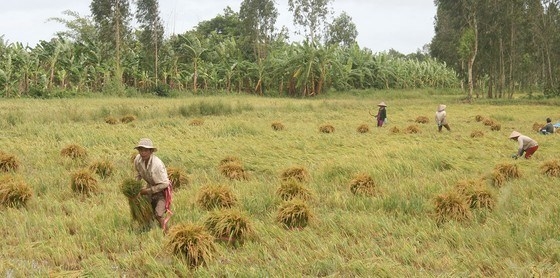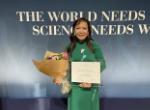Initiative to protect food systems in Asian mega delta launched in Can Tho
ABO/NDO – The “Securing the Food Systems of Asian Mega-Deltas for Climate and Livelihood Resilience” Initiative (AMD) was launched at a conference in the Mekong Delta city of Can Tho on June 28.
Home to 177 million people, of whom 36% are poor, the densely populated Asian mega-deltas are biodiverse, fertile and productive food baskets dominated by rice, fisheries and aquaculture that support millions of people beyond the delta dwellers themselves.
However, tens of millions of small-scale producers living in Asian mega-deltas face risks to food and nutrition security and livelihoods from impacts of climate change. The deltas are also severely affected by more frequent and more intense floods, sea-level rise and salinisation of freshwater and soil.
 |
| Mekong Delta farmers (Photo: sggp.org.vn). |
Therefore, this initiative aims to create resilient, inclusive and productive deltas - which maintain socio-ecological integrity, adapt to climatic and other stressors, and support human prosperity and wellbeing - by removing systemic barriers to the scaling of transformative technologies and practices at community, national and regional levels, said Dr. Björn Ole Sander, Chief Representative of the International Rice Research Institute (IRRI) in Vietnam and also head of the initiative.
It will focus on three major deltas in Asia, namely the Ganges-Brahmaputra Delta in Bangladesh and India, the Irrawaddy Delta in Myanmar, and the Mekong River Delta in Vietnam and Cambodia.
Le Thanh Tung, Deputy Director of the Department of Crop Production under the Vietnamese Ministry of Agriculture and Rural Development, said that the field of operation of the AMD Initiative is in line with his ministry’s strategic development orientation in agriculture, farmers and rural areas.
The initiative’s goals are in accordance with what Vietnam's agricultural industry wants to achieve in cooperating with the Mekong River Delta countries to stabilise food and goods for the region’s people and respond to climate change, he added.
(Source: NDO)
 về đầu trang
về đầu trang







